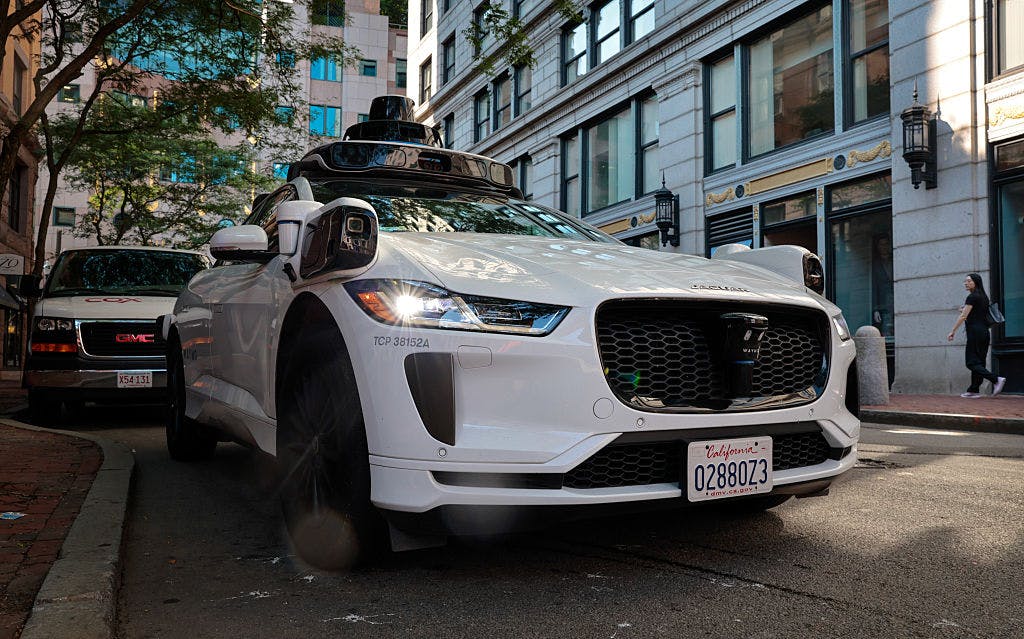To speed or not to speed? Tesla and Google’s Waymo disagree
Experts say going faster makes accidents more likely and potentially more harmful: “ Do we really want computers to make the decision to put other lives at risk because they want to break traffic rules?”
Google’s Waymo and Tesla are racing to win the driverless taxi market, but only Tesla appears to be going above the speed limit to get there.
A number of Tesla robotaxi videos show the vehicles going five or more miles per hour above the speed limit. Meanwhile, Waymo’s policy is to follow the posted speed limit, though the company says it will go below for construction areas or slightly above to change a lane, for example.
It’s an interesting difference as both companies try to win over the public’s trust in their new — and potentially dangerous — technologies. Tesla influencers who are part of the company’s limited launch have maintained that robotaxis go above the speed limit to match the speed of traffic, a practice they see as safer since it doesn’t disturb the flow of traffic. Tesla’s autonomous technology is trained on real-life drivers, and presumably it’s not screening out speeders in the training data.
The practice of speeding in self-driving Teslas lines up with what the company allows consumers to do in its supervised full self-driving cars. Tesla’s Model Y owner’s manual details a setting called “Max Speed Offset,” which reads:
“Max Speed Offset: Set the percentage offset over the currently detected speed limit that Full Self-Driving (Supervised) can drive if it is necessary to drive faster than the speed limit to match the flow of traffic.”
Tesla didn’t respond to requests for comment about the incidents or its speeding policy.
Waymo recently collected data from its coverage areas in Phoenix and San Francisco and found that 33% to 49% of human drivers there were speeding, depending on the road type and location. The company contends that its speed-limit-following vehicles are safer than human drivers, and that speed compliance in those two cities alone could reduce traffic fatalities by 82 deaths annually. (Waymo hasn’t yet released data for its newer Austin market, where Tesla is also operating.)
Tesla CEO Elon Musk has repeatedly said that Tesla’s full self-driving will be significantly safer than human drivers.
“The standard has to be very high because the moment there’s any kind of accident with an autonomous car, that immediately gets worldwide headlines, even though about 40,000 people die every year in car accidents in the US, and most of them don’t even get mentioned anywhere,” Musk said on an earnings call this year. “But if somebody scrapes a shin with an autonomous car, it’s headline news.”
But when it comes to speeding, there are some hard truths.
Ken Kolosh, statistics manager at the National Safety Council, says that speeding makes accidents more likely and more dangerous when they do happen. The reasons are pure physics: when you’re traveling at a faster speed, it takes longer to stop, so it’s harder to avoid objects — or people — in your path. And higher speeds mean more damage and death.
“Nearly 3 in 10 traffic deaths in 2023 involved speeding — that’s 11,775 people killed, or more than 32 deaths every day,” he told Sherwood News.
The findings are the same over at the National Highway Traffic Safety Administration.
Phil Koopman, an associate professor of electrical and computer engineering at Carnegie Mellon University who specializes in autonomous vehicle safety, says the situation is a little complicated since the speed limit doesn’t always represent the appropriate speed, which varies by road type, condition, and weather, among other variables, but that generally the faster a vehicle drives, the more dangerous it is — even just five miles per hour faster.
Importantly, Koopman also says the comparison between robots and humans speeding doesn’t track because autonomous cars don’t have the same disincentives that people do, like traffic tickets or jail, if they violate the law or hurt someone.
“ Do we really want computers to make the decision to put other lives at risk because they want to break traffic rules?” he said.
When asked if he would personally ride in a Waymo or a Tesla robotaxi, Koopman said he would ride in the former but not the latter. He also said asking which is safer for the rider is the wrong question.
Instead, he pointed to other vehicles, cyclists, and pedestrians as where the concern should lie when considering autonomous vehicles. He said he personally would not walk in front of either.
“I would not be confident that they would see me and that they would detect me,” he said.
